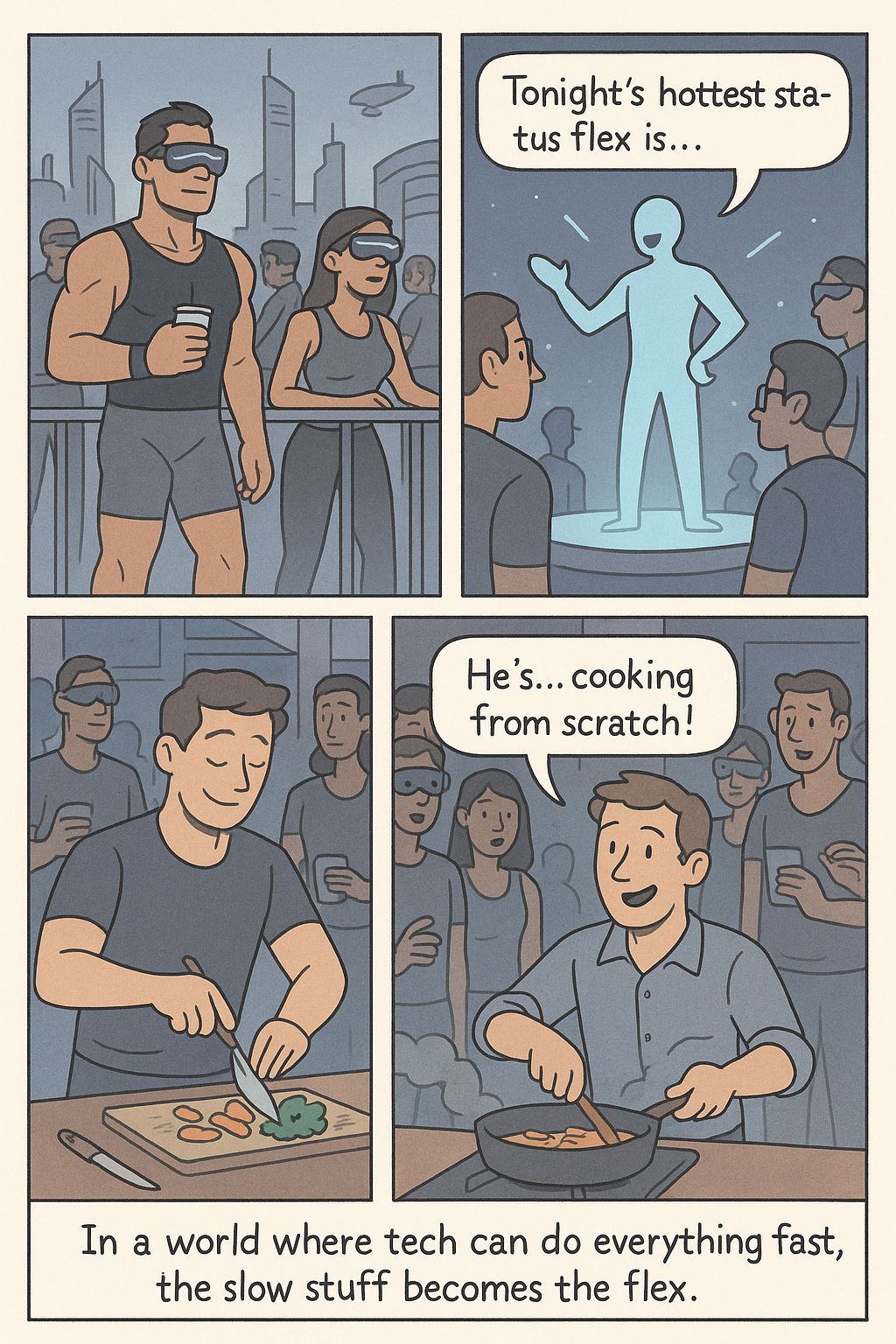
Context:
We’re living through a weird inversion of status. If you rewind to the early 2010s, being busy and “optimized” was the flex—Uber Eats, Peloton, Duolingo streaks, and all the hacks. But as we tiptoe into a world where AI, short-form dopamine hits, waifu companions, and Ozempic make everything frictionless, the new status symbols are quietly shifting. In a landscape where everything can be automated, faked, or shortcut, demonstrating attention and willpower becomes the real flex.
Market Signal:
Cooking your own food is back, not because you have to, but because you choose to. Uber Eats is now “wage-y” coded—convenient, but totally unsexy. The new luxury is unnecessary skill, the kind that says: “I have agency, health, and time to waste on this.”
Running marathons is the next frontier. Being skinny is table stakes (Ozempic, semaglutide, etc.); being fit is marginally harder. But you can’t fake the misery of a 20-mile run. The marathon is proof-of-work for the body.
Language learning? Once babelfish-level translation arrives, speaking another language will be pure performance art—a hobby, a flex, a way to show off patience and curiosity. Dead languages will be the next status dialect.
Reading novels (not non-fiction, not summaries, not AI-generated CliffsNotes) is a new marker of depth. Engaging deeply with fiction is about interest, not output. It’s patience and comprehension in a world optimized for speed.
Takeaways:
The next decade’s status symbols will be about deliberate friction: anything that requires attention, patience, and willpower.
“Gentlemanly” (or gentlewomanly) hobbies are coming back—cooking, reading, running, learning for the sake of it.
In a world where outcomes can be faked, process and tactile experience become the new luxury.
For founders and investors: new markets will open around hobbies and experiences that can’t be faked or automated. The value is in the signal, not the utility.

